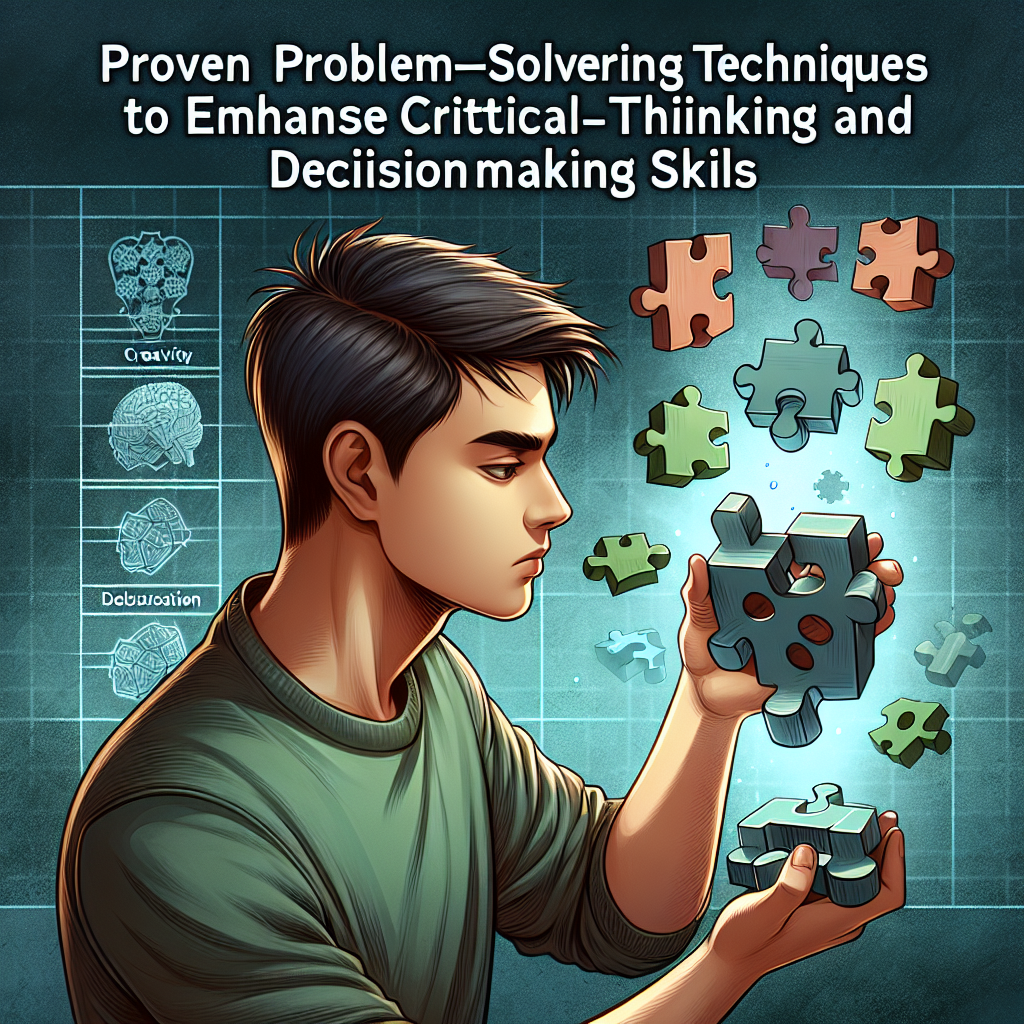Critical thinking and decision-making are essential skills in all aspects of life, from personal relationships to professional success. Being able to think critically and make sound decisions can lead to better problem-solving and ultimately a more fulfilling and successful life. In this article, we will explore proven problem-solving techniques to enhance critical thinking and decision-making skills.
Critical thinking is the ability to analyze and evaluate information objectively and make reasoned judgments. It involves asking questions, gathering relevant information, and weighing the evidence before making a decision. Decision-making, on the other hand, is the process of choosing the best course of action from among various alternatives. Both critical thinking and decision-making skills are interrelated and essential for success in both personal and professional life.
Here are some proven problem-solving techniques to enhance critical thinking and decision-making skills:
1. Define the Problem: The first step in solving any problem is to clearly define it. Take the time to understand the issue at hand and break it down into smaller components. Ask questions like: What is the problem? What are the underlying causes? What are the possible solutions?
2. Gather Information: Once you have defined the problem, gather as much relevant information as possible. Research the issue, talk to experts, and gather data to help you make an informed decision.
3. Identify Alternatives: Brainstorm a list of possible solutions to the problem. Consider both traditional and unconventional solutions and think outside the box. The more alternatives you can come up with, the better chance you have of finding the best solution.
4. Evaluate the Alternatives: After identifying potential solutions, evaluate each one based on its feasibility, effectiveness, and potential consequences. Consider the pros and cons of each alternative and weigh the evidence before making a decision.
5. Make a Decision: Once you have evaluated the alternatives, make a decision based on the information you have gathered. Trust your instincts, but also rely on logic and reasoning to make the best choice.
6. Implement the Decision: After making a decision, take action to implement it. Be prepared to adapt and make changes as needed, but commit to following through with your decision.
7. Reflect and Learn: After implementing the decision, take the time to reflect on the outcome. What worked well? What could have been done differently? Use the experience to learn and improve your problem-solving skills for future challenges.
By following these proven problem-solving techniques, you can enhance your critical thinking and decision-making skills and become a more effective problem solver in all areas of your life. Whether you are facing a complex business problem or a personal dilemma, these techniques can help you make informed decisions and achieve better outcomes.
FAQs:
Q: How can I improve my critical thinking skills?
A: To improve your critical thinking skills, practice asking questions, gathering information, and weighing the evidence before making a decision. Engage in activities that challenge your thinking and encourage you to consider multiple perspectives.
Q: How can I make better decisions?
A: To make better decisions, take the time to define the problem, gather relevant information, identify alternatives, evaluate the options, make a decision, and implement it. Trust your instincts, but also rely on logic and reasoning to guide your choices.
Q: What role does critical thinking play in decision-making?
A: Critical thinking is essential in decision-making because it involves analyzing information objectively and making reasoned judgments. By thinking critically, you can evaluate the alternatives, weigh the evidence, and make informed decisions that lead to better outcomes.
Q: How can I apply problem-solving techniques in my personal life?
A: Problem-solving techniques can be applied in all areas of your life, from personal relationships to work challenges. By defining the problem, gathering information, identifying alternatives, and making informed decisions, you can improve your problem-solving skills and achieve better results in all aspects of your life.





Leave A Comment